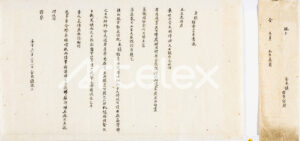Kim Dong-jin (金東鎭, 1867–1952) was a Korean independence activist and Confucian scholar born in Sangseok-ri, Buseok-myeon, Yeongju. His courtesy name was Gukgyeong (國卿), and his pen names included Jeongsan (貞山) and Seokpo (石圃). He hailed from the Seonseong Kim clan.
Educated under prominent Confucian masters Gwon Yeon-ha (權璉夏) and Kim Heung-rak (金興洛), Kim became involved in nationalist resistance activities early on. In 1914, he joined the secret anti-Japanese organization Daehan Dongnip Uigunbu (Korean Righteous Army Command) led by Im Byeong-chan (林炳瓚), where he supported fundraising and communications efforts. He was arrested during this period for his involvement.
In 1919, he participated in the Paris Appeal Movement by signing a petition to the international community demanding Korea’s independence. For this act, he was imprisoned and tortured for over 40 days.
In 1925, he supported the national fundraising campaign led by Kim Chang-sook (金昌淑), involving his own son in the efforts. In 1926, he was imprisoned again following the Second Yu Rim Dan Uprising, although he was released a month later.
Kim’s 1942 letter, written during the height of Japan’s Pacific War aggression, is a testament to his unwavering commitment to Korean sovereignty and Confucian values. It serves as an important historical document illustrating the ideological depth of Korea’s independence movement, especially among Confucian intellectuals.
Kim Dong-jin passed away at his home in Yeongju on December 22, 1952, at the age of 85, leaving behind a legacy of resistance rooted in scholarship and moral conviction.

